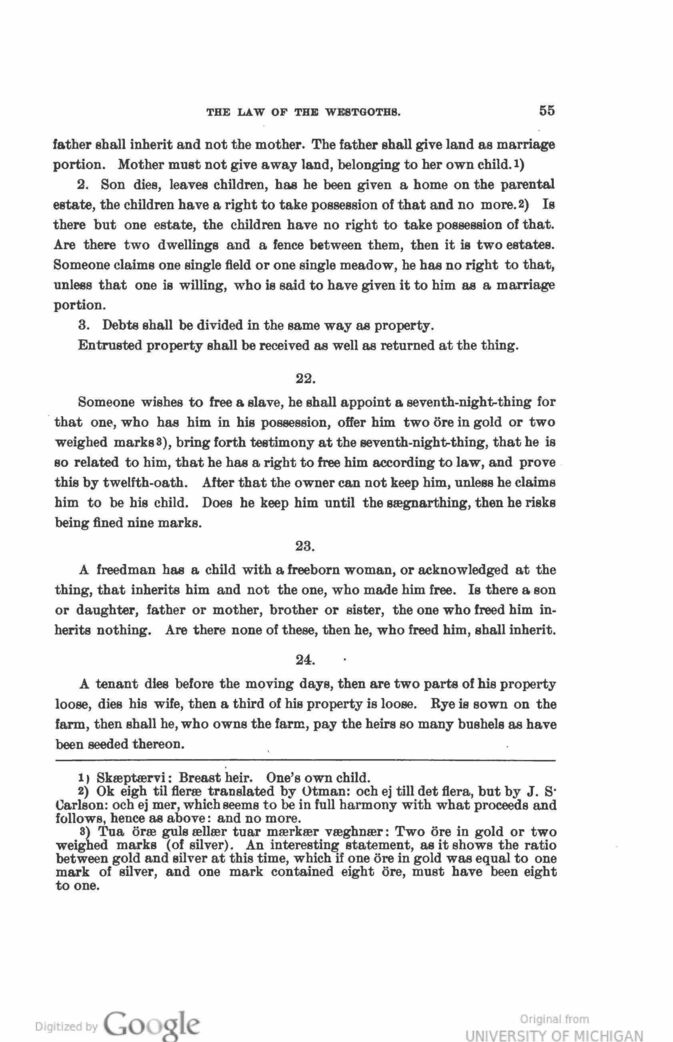
Full resolution (JPEG) - On this page / på denna sida - Sidor ...

<< prev. page << föreg. sida << >> nästa sida >> next page >>
Below is the raw OCR text
from the above scanned image.
Do you see an error? Proofread the page now!
Här nedan syns maskintolkade texten från faksimilbilden ovan.
Ser du något fel? Korrekturläs sidan nu!
This page has never been proofread. / Denna sida har aldrig korrekturlästs.
55 THE LAW OP THE WEBTGOTHB.
father shall inherit and not the mother. The father shall give land as marriage
portion. Mother must not give away land, belonging to her own child, i)
2. Son dies, leaves children, has he been given a home on the parental
estate, the children have a right to take possession of that and no more. 2) Is
there but one estate, the children have no right to take possession of that.
Are there two dwellings and a fence between them, then it is two estates.
Someone claims one single field or one single meadow, he has no right to that,
unless that one is willing, who is said to have given it to him as a marriage
portion.
3. Debts shall be divided in the same way as property.
Entrusted property shall be received as well as returned at the thing.
22.
Someone wishes to free a slave, he shall appoint a seventh-night-thing for
that one, who has him in his possession, offer him two ore in gold or two
weighed marks s), bring forth testimony at the seventh-night-thing, that he is
so related to him, that he has a right to free him according to law, and prove
this by twelfth-oath. After that the owner can not keep him, unless he claims
him to be his child. Does he keep him until the sægnarthing, then he risks
being fined nine marks.
23.
A freedman has a child with a freeborn woman, or acknowledged at the
thing, that inherits him and not the one, who made him free. Is there a son
or daughter, father or mother, brother or sister, the one who freed him
inherits nothing. Are there none of these, then he, who freed him, shall inherit.
24.
A tenant dies before the moving days, then are two parts of his property
loose, dies his wife, then a third of his property is loose. Rye is sown on the
farm, then shall he, who owns the farm, pay the heirs so many bushels as have
been seeded thereon.
1) Skæptærvi: Breast heir. One’s own child.
2) Ok eigh til fleræ translated by Otman: och ej till det flera, but by J. S’
Carlson: och ej mer, which seems to be in full harmony with what proceeds and
follows, hence as above: and no more.
3) Tua öræ guls ællær tuar mærkær væghnær: Two öre in gold or two
weighed marks (of silver). An interesting statement, as it shows the ratio
between gold and silver at this time, which if one ore in gold was equal to one
mark of silver, and one mark contained eight ore, must have been eight
to one.
<< prev. page << föreg. sida << >> nästa sida >> next page >>